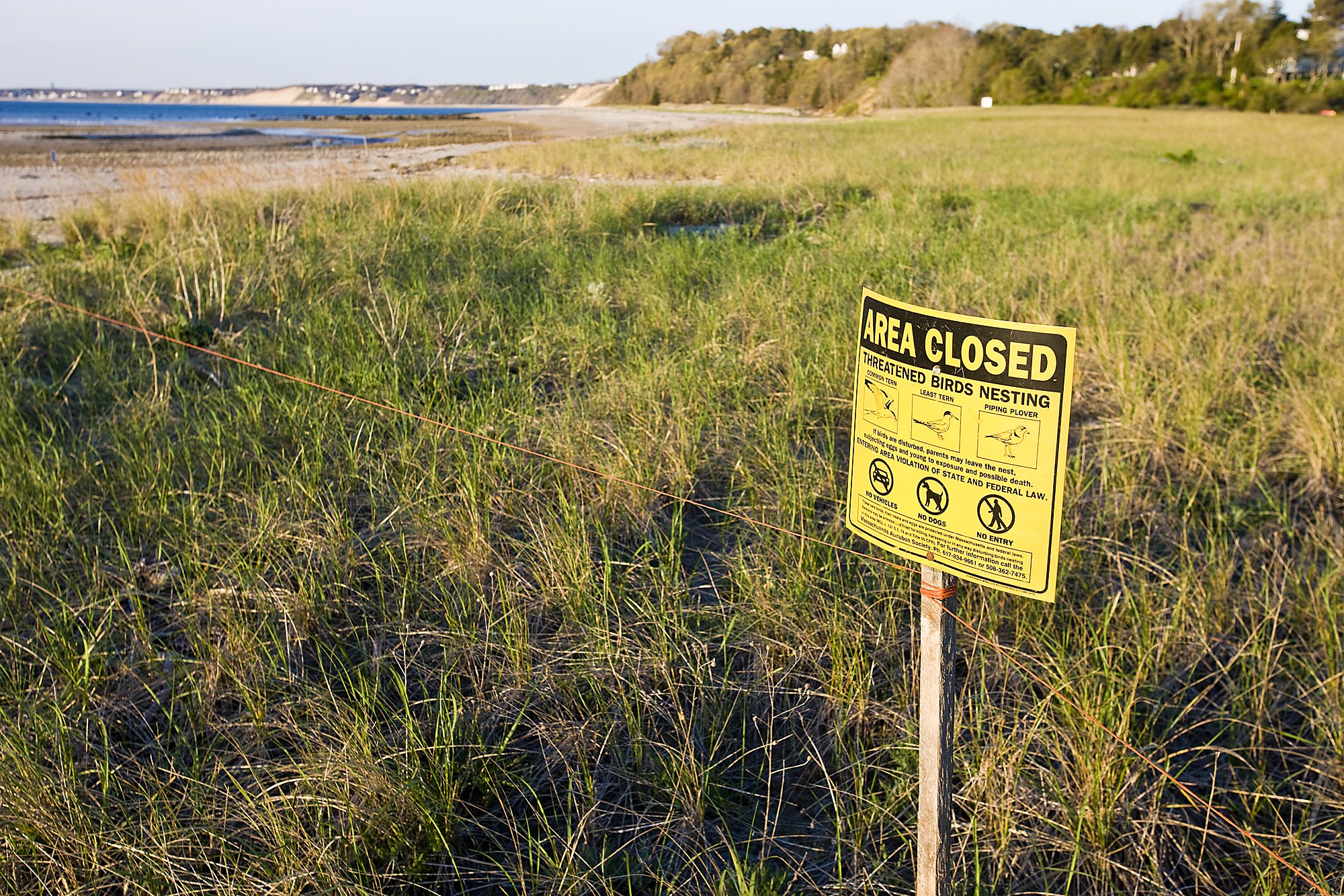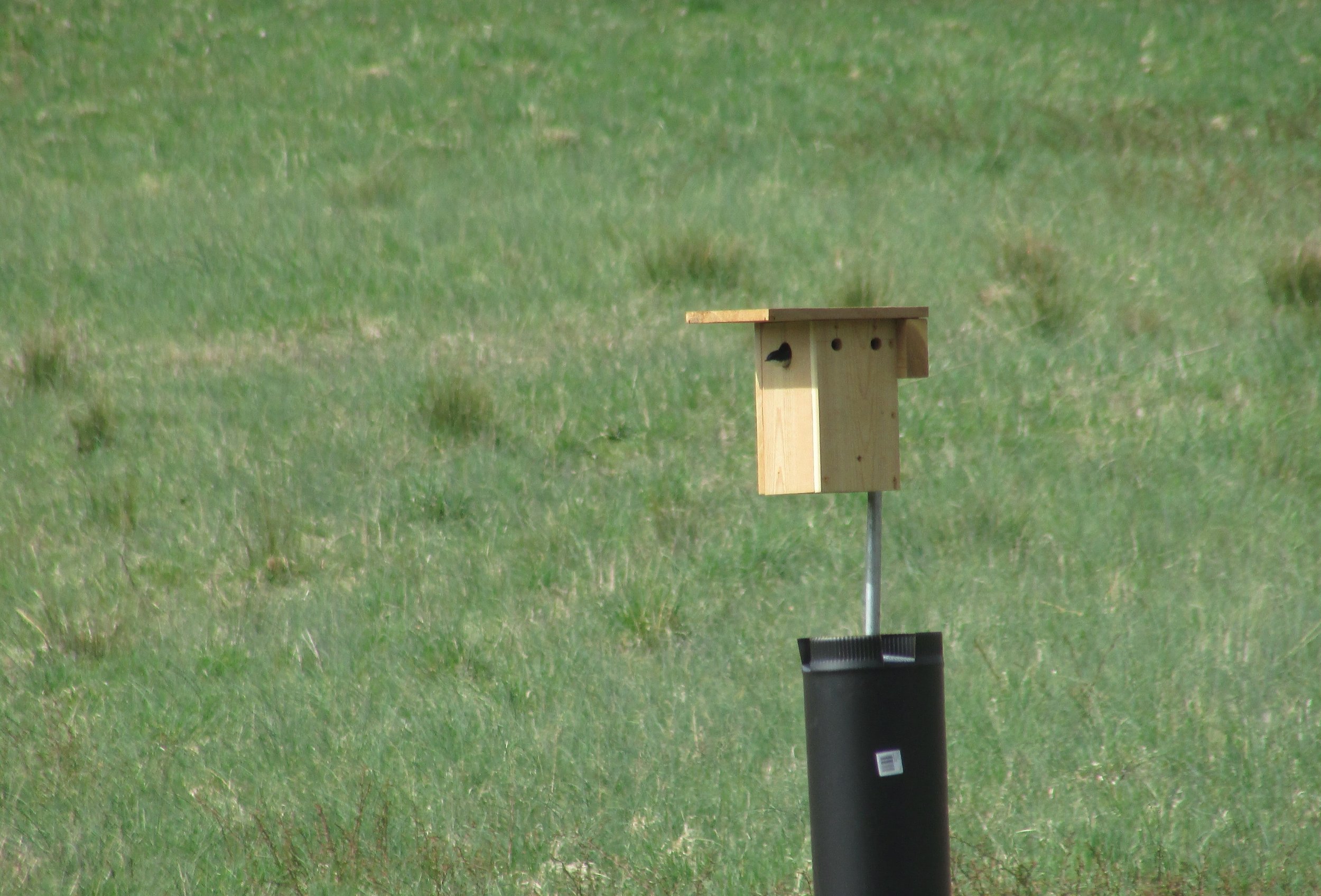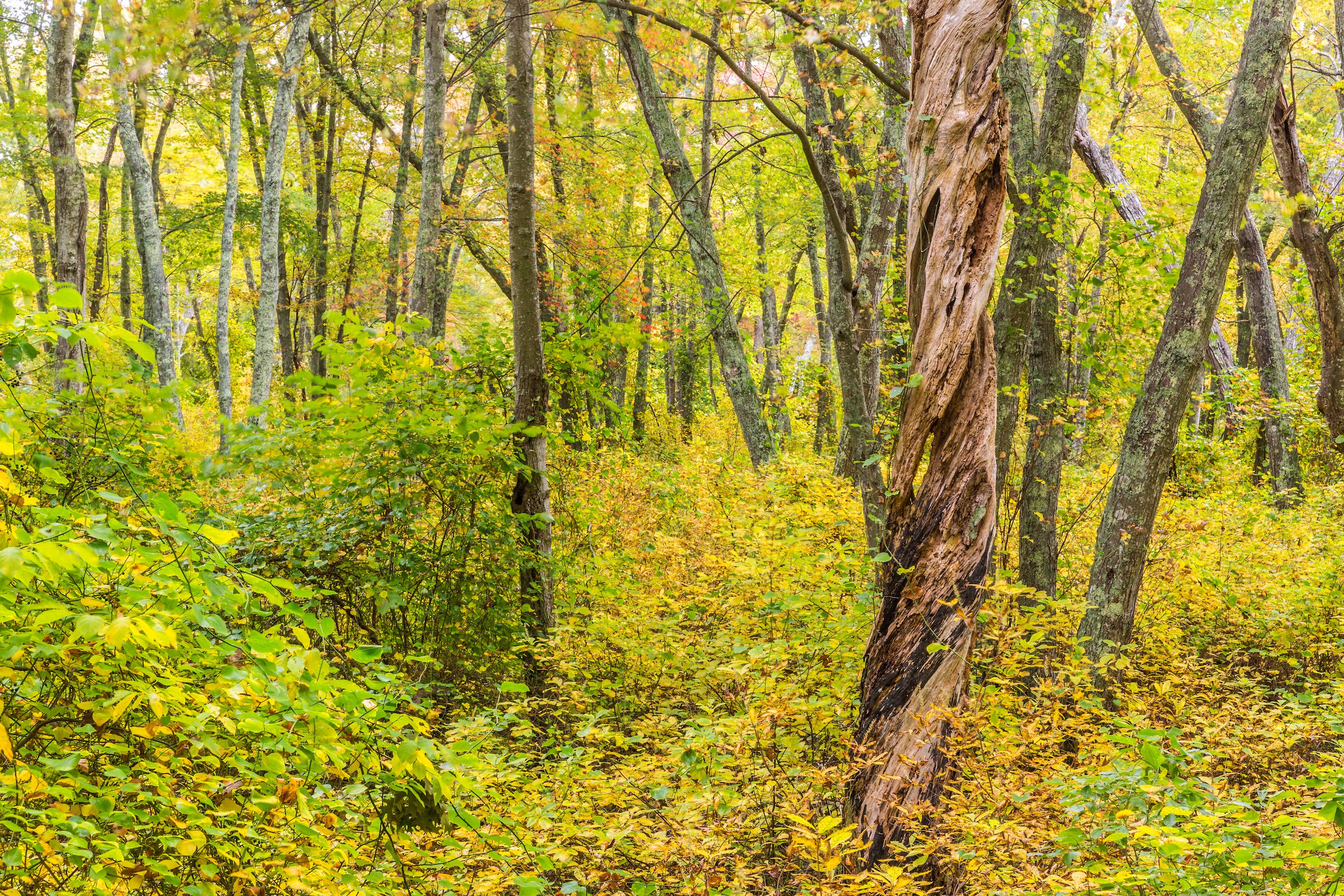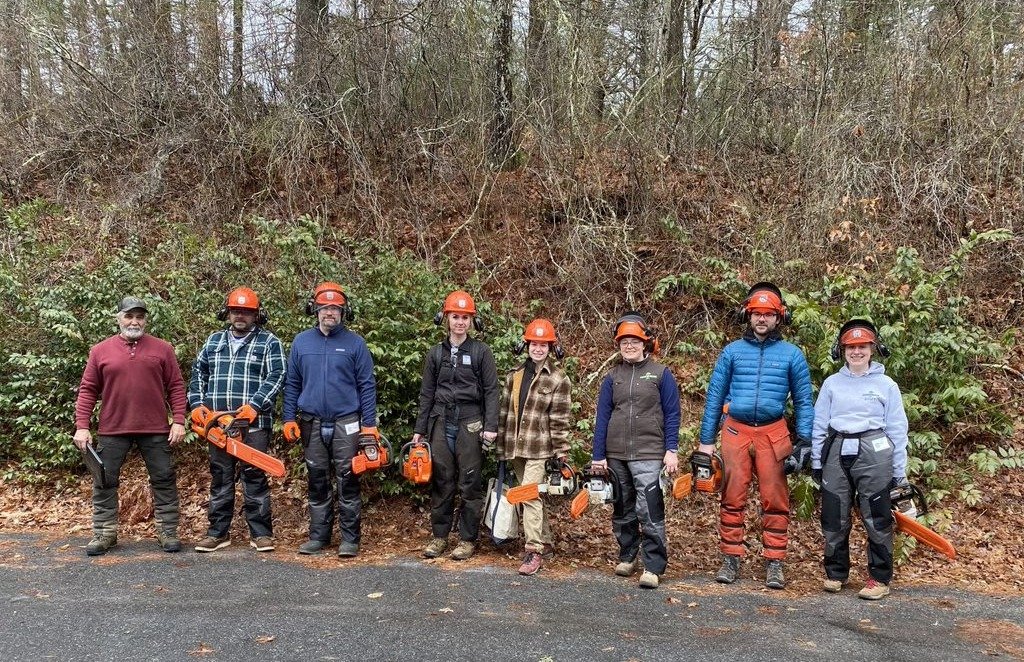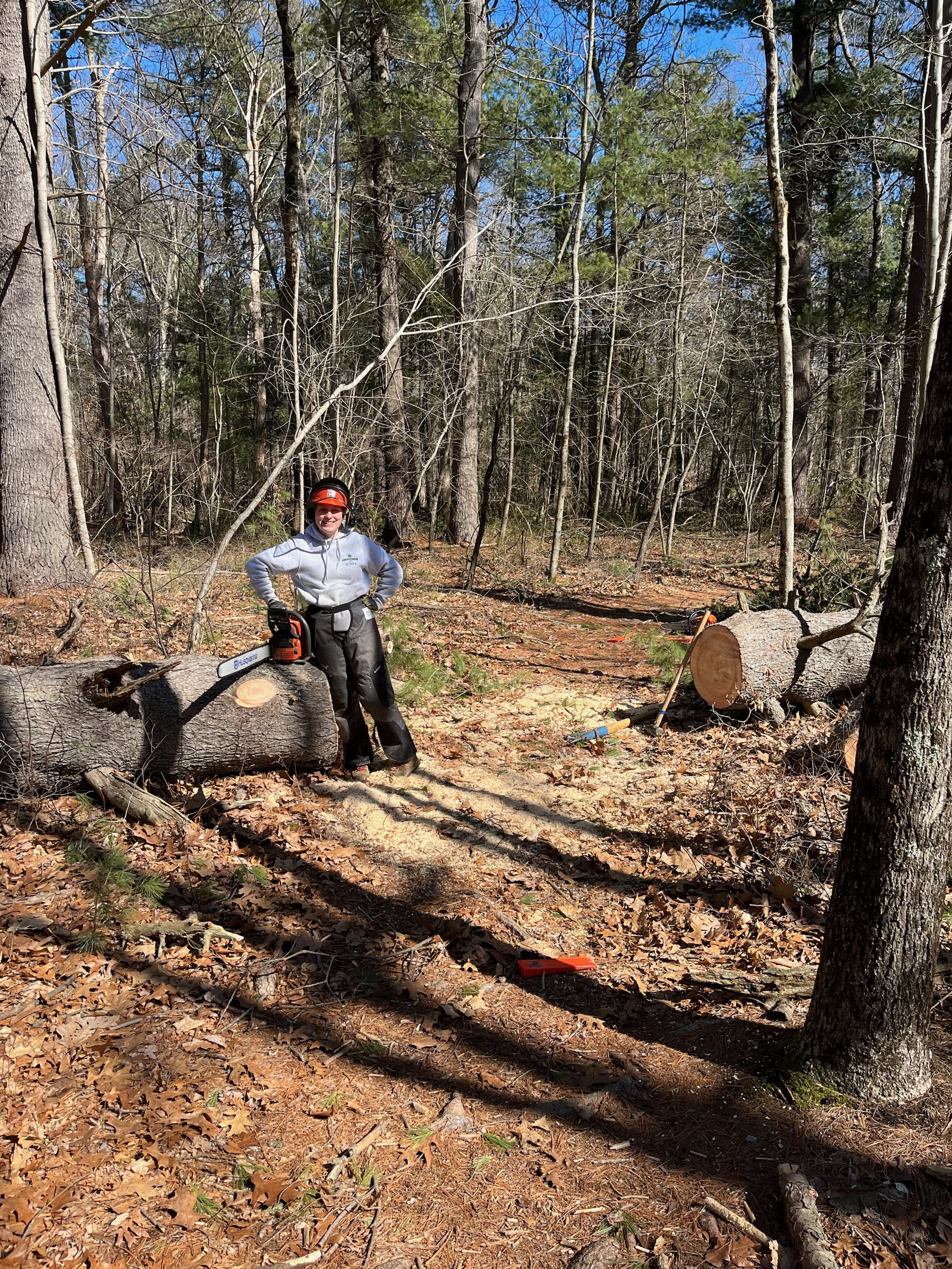Creative cross-sector partnerships a win-win-win for ecosystems, communities, team morale
By Thomas Patti, Communications Coordinator
REI Hingham and Wildlands Trust staff pose outside of the Stewardship Training Center in Plymouth.
FOR IMMEDIATE RELEASE
Plymouth, MA — On April 19, Wildlands Trust welcomed REI Hingham staff to its new Stewardship Training Center (STC) in Plymouth for a volunteer workday. Wildlands Trust is eager to engage more corporate partners in conservation and community service as the STC embarks on its first year serving land stewardship volunteers and professionals from across the state.
The April workday marked REI’s fourth volunteer engagement with Wildlands Trust, including its third at the STC. Paul Vicino, softgoods lead at REI Hingham, began organizing the staff outings when similar company-led events were phased out.
“I was already a volunteer with [Wildlands Trust], so I thought I could get some people to help with the new trails,” Vicino said. “We also wanted to celebrate Earth Day while giving back to our community.”
Among other tasks, the REI staff completed gardening projects around the STC and helped build new walking steps between two trails.
“It’s a good team-building and community-building activity,” added Debbie Hill, operations lead at REI Hingham. “The staff that participates feels connected, and we talk while we’re doing it and get to know each other a little better. All of us who work at REI know how important it is to help be good stewards of our environment.”
REI Hingham and Wildlands Trust staff complete gardening projects at the Stewardship Training Center.
The STC, acquired by Wildlands Trust in 2022, sits within a 460-acre conservation area surrounding Halfway Pond in South Plymouth. Wildlands Trust aims to work with town, state, nonprofit, and corporate partners at the STC to advance skill development and address land stewardship needs throughout Massachusetts. To learn more about the STC, visit wildlandstrust.org/training.
“I appreciate the enthusiasm you all bring to our trails,” Vicino concluded. “Not to mention lunch. We’ll do something again with Wildlands, for sure.”
To schedule a corporate workday at the STC or a different Wildlands Trust preserve, contact Stewardship Coordinator Zoë Smiarowski at zsmiarowski@wildlandstrust.org or 774-343-5121 x109.
About Wildlands Trust: Wildlands Trust is one of the largest and oldest regional land trusts in Massachusetts. Since 1973, the Plymouth-based nonprofit has helped protect nearly 14,000 acres of natural and agricultural land across Southeastern Massachusetts, keeping local communities healthy and connected to the natural world. Visit wildlandstrust.org for more details.
###



